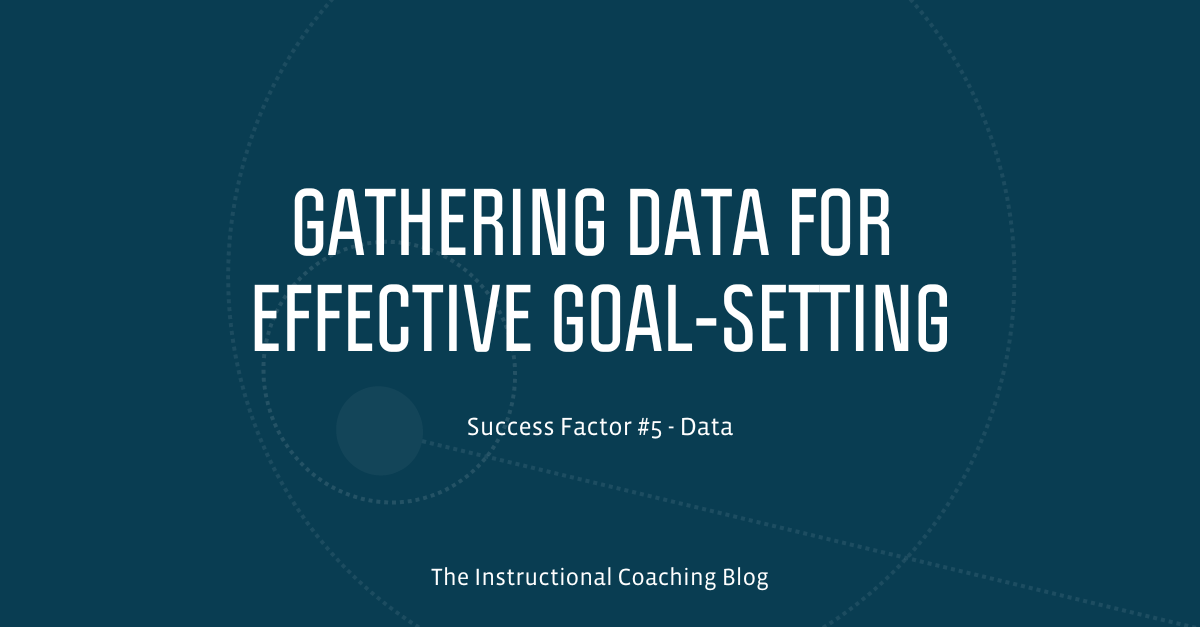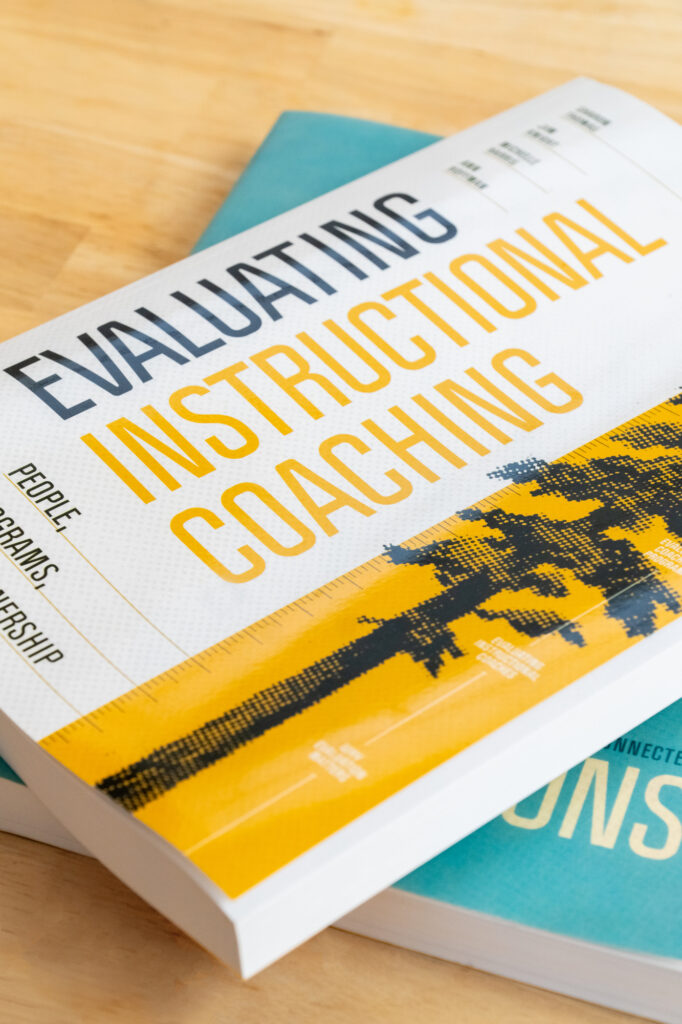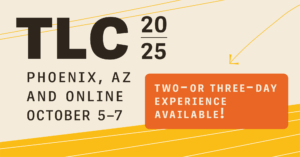Effective instructional coaches are skilled in gathering data to help teachers set goals and to monitor progress on those goals. We have seen a clear difference between what coaching looks like before a district begins a concerted focus on goal setting with teachers as the focus of coaching and what coaching looks like afterwards.
One of the most notable differences we have observed has been the quality of coaching conversations – even casual ones.
A coach might have once approached a teacher in the hallway and asked, “How are things going?” or “How is using that new strategy going?” These types of questions yielded the typical “fine” reply. Sometimes coaches would even ask “Is there anything I can do to help you?”, only to get the response, “No, thanks. I’m good.” Despite coaches’ attempts to engage with teachers, not much deep conversation about classroom improvement was happening because the conversations lacked focus.
Referring to specific goals changed the coaching conversations. Some goal specific questions were “What’s the progress on your engagement goal?” or “Does measuring your goal with that new tool work? How can I help?” These types of questions allowed for coaches and teachers to have deeper, more specific, and more helpful conversations. Goal specific questions, like these, shined a light on what students were doing and how the classroom was changing.
Goals make for deeper coaching, which makes for deeper change for students.
Similarly, when coaches used the Identify Questions to help teachers set goals as part of the Impact Cycle (Knight, 2017), teachers were able to set student-focused goals and were much more reflective before each coaching session. This structure also resulted in more efficient and productive coaching sessions. In fact, teachers sometimes began answering the Identify Questions as soon as the coach stepped foot in the classroom!
Because goals are so important in coaching, data are crucial. A coach needs to have knowledge about various ways to measure changes in student academic achievement, student behavior, and student engagement, and they can assist and encourage teachers with frequent, clear, and helpful data collection on goals. Skill not only in collecting and analyzing data but also in using a partnership approach when discussing data is a marker of an accomplished coach.
To learn more about using Data for Goal Setting with the Identify Questions, consider attending one of our Impact Cycle workshops. We offer virtual cohorts or you can bring ICG to your school or district for a customized learning day.





























